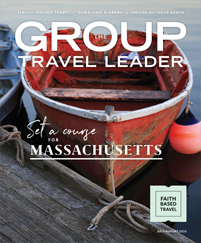Dewey Weddington admitted, “We are oddballs.”
Weddington, vice president of marketing for SakéOne, noted, “We have Americans brewing and packaging saké specifically for the United States. We are the only saké brewery run by Americans.”
Although the popularity of the traditional Japanese drink is growing, Weddington said education is a big part of visits to SakéOne’s plant, about a half-hour west of Portland.
“People are more interested to learn what it is, especially the premium, which is what we do here,” he said. “We get lots and lots of questions.”
The company offers a variety of tasting options, but the most popular is called the saké shock, which offers five saké and food pairings.
“They are usually things people don’t expect, like cheeses and even buffalo jerky,” said Weddington. “We try to work with local ingredients. It’s not just for sushi anymore.
“The big difference is taste. Once you get the palate and brain connected, then it is pretty easy.”
Groups can also tour the brewery, known as a “kura,” where members see the process from polishing of rice to bottling.
Although run by Americans, the company uses traditional Japanese terminology. Its primary saké is junmai ginjo, which is pure saké with nothing added. “It is just the four ingredients: rice, water, yeast and koji, a mold that grows in rice that converts starches into sugar,” said Weddington. “It is a very unique process to saké.”
Although SakéOne’s kura is in the heart of Oregon wine country in Washington County and the finished product is similar to white wine, Weddington said the manufacturing process is technically more like that for beer.
“We say, ‘Brew like beer, drink like wine,’” he said.
Other operations in Washington County prefer that you drink wine like wine. There are more than a dozen wineries set among the county’s rolling hills, fruit and hazelnut orchards, and forests.
One of the founding wineries in the region is Ponzi Vineyards.
“We were founded in 1970 and are still owned and operated by the Ponzi family,” said Laurel Dent, marketing communications coordinator for the winery. “All three of the kids are part of the business today.”
Dick Ponzi, who is from a first-generation Italian family, moved to Oregon 40 years ago to plant Pinot noir grapes, which were not well known in the United States at the time. The original clippings came from Italy.
“He grew up watching his parents making wine in the basement, something many Italian families did. His hunch was right,” said Dent. “It is a great variety that does well here.”
Although the winery now produces a variety of wines, Pinot noir is still its mainstay.
“We have a great tasting room at the estate winery in Beaverton,” said Dent. “We are the closest winery to Portland. When folks come out here, there is a large lawn space that is open for picnicking, two bocce courts and the old estate vineyards. It is a fun experience to see the vines and walk through the rows and into the tasting room.”
Often, daughter Luisa Ponzi, the winemaker, is available to talk about how the wines are processed.
The family also owns a restaurant in Dundee, where there is another cluster of wineries, with a wine bar next door that offers wines from around the state.
www.sakeone.com
www.ponziwines.com
More on Oregon:
A bountiful journey
Japanese culture comes to Oregon’s wine country
WEB EXCLUSIVE! Willamette Valley Sampler











